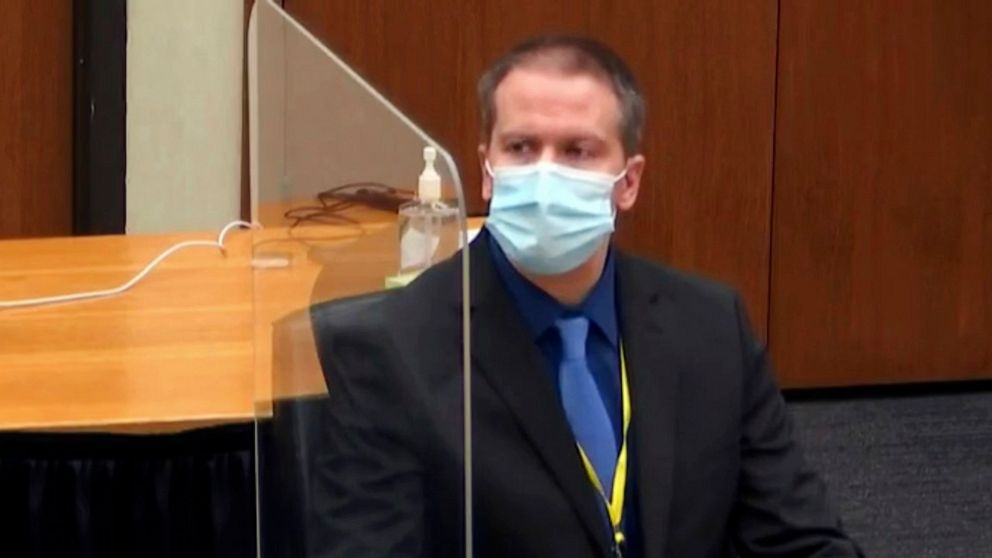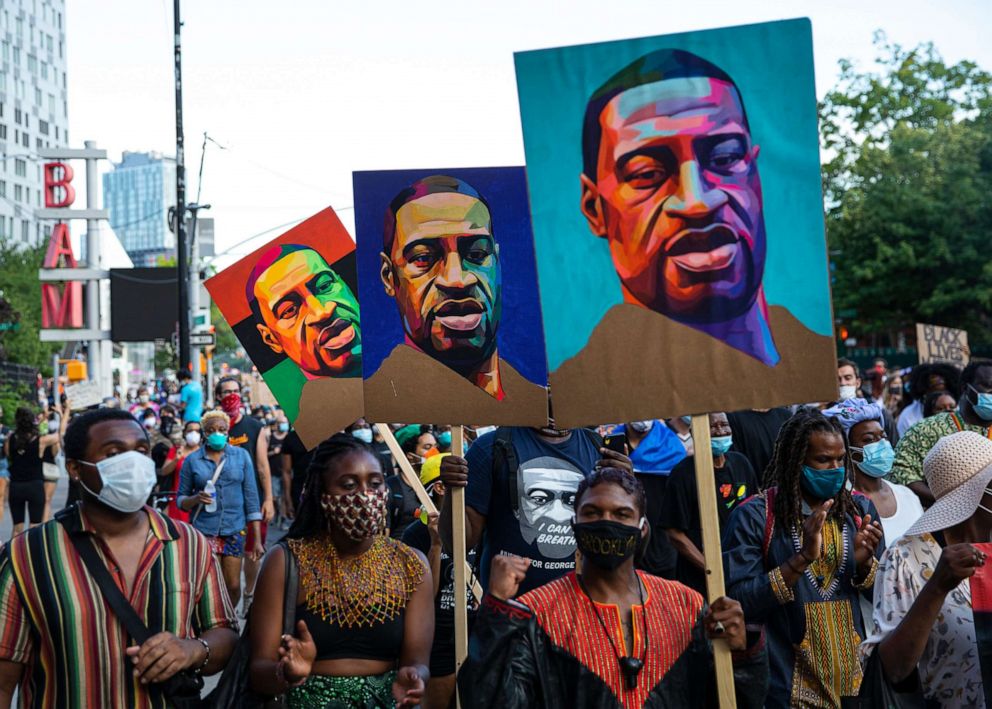How to talk to your children about the Derek Chauvin trial in George Floyd's death
The murder trial is entering its third week.
Developmental child psychologist Tia Kim considers her 13-year-old son to be very mature for his age. So when he expressed an interest in following the trial of Derek Chauvin in the death of George Floyd while on spring break this past week, she was comfortable with him watching it.
"The reason I let them watch it is because I use it as discussion points with him and having discussions around, what are his opinions about it? What is he thinking about it? Just to have an open dialogue," Kim, the vice president of education, research and impact for the Committee for Children, an advocacy group focused on social-emotional learning, told ABC News. "I use it as a learning opportunity to start to have those discussions. I think, for us as a family, it's a good segue into having what could be a difficult conversation."
Floyd's death in Minneapolis last year after being handcuffed and pinned to the ground by the former officer's knee was captured in excruciating detail on bystander and police video. Much of this footage has repeatedly come up during Chauvin's trial, which has also been broadcast. The case sparked massive protests across the country last summer and resurfaced deep-seated tensions between police and the community.
Chauvin, 45, faces charges of manslaughter, second-degree murder and third-degree murder in the death of Floyd, 46. He has pleaded not guilty to the charges.
As the murder trial enters its third week, parents may be grappling with how to talk to their children about the case and Floyd's death, including issues of police brutality and racism.
"I would think this is a conversation that's happening right now and it's not an easy one," Erin Wilkey Oh, content director for family and community engagement at Common Sense Media, told ABC News.

Parents may also be debating how much of the upsetting footage and graphic details of Floyd's death their children should be exposed to during testimonies. Given that, Wilkey Oh advises against younger children, including those in middle school, watching the trial. "But that doesn't mean don't talk about it," she said.
"They may know about George Floyd's death already, so check in with them and find out, what do they know about what's happening, check in with their feelings," Wilkey Oh said.
With younger children, it's best to keep it "simple and short" whenever talking about complex or difficult topics, Kim said. "As your kids get older, your conversations can get more detailed and nuanced and be more discussion-based."
For teenagers, parents need to make a judgment call on having them watch the trial, though it may be harder to control what they have access to online, Wilkey Oh said. She recommended checking in with them and finding out where they're getting their information, what they're thinking and to talk through the potential outcomes of the trial.
Kim suggested finding out what they know and, if needed, correcting any misinformation and misconceptions they may have about the case.
Parents can also help their children process their feelings and emotions around the trial. In general, that could look like something as simple as going on a walk and getting fresh air, and brainstorming ways your child can help handle their emotions, Abigail Gewirtz, a Minneapolis-based child psychologist and expert on families under stress, told ABC News.
"Truly listen, and then very thoughtfully and intentionally with your child, engage in a conversation that helps your child feel better and also address whatever the issue is he is bringing to you," she said.

When talking to children about difficult subjects, parents should also pay attention to their own feelings and emotions and "understand how these kinds of events affect us," said Gewirtz, who is the author of "When the World Feels like a Scary Place: Essential Conversations for Anxious Parents and Worried Kids."
That may mean having another caregiver lead the conversation to help avoid getting to a heightened emotional place, she said.
"Be prepared to listen to your child without your own emotions getting in the way and really listen, which I think is something that often we feel we don't have time to do," she said.
The trial may be especially difficult to watch and discuss for families who have experienced racial trauma themselves, experts said.
"For some kids and families, it could be re-traumatizing, particularly if they have similar lived experiences of what has happened," Kim said. "So it's about making sure that you're supporting kids that might be feeling really anxious or stressed out about it as well."
After Floyd's death, Common Sense Media published "How to Talk with Kids About Racism and Racial Violence," written by child clinical psychologist Allison Briscoe-Smith, to guide families through these types of conversations, which may be recurring during the trial.
"It's an opportunity to talk about what this means for your own family," Wilkey Oh said. "They're big conversations. Teenagers are ready for that."
Doing something tangible that helps others may aid children in processing the distressing case.
"I think that's a fantastic opportunity for you to empower your child to learn to get engaged in challenging problems," Gewirtz said.
For Kim, conversations around the trial may also encourage perspective-taking.
"If I understand different perspectives in the community and my own perspective and my own lived experiences, how do I use all that to perhaps try to address social inequities or to think about how I can improve the greater community that I live in?" Kim said. "I think there are opportunities where you can get kids to think about that and be civically engaged and civic-minded."



